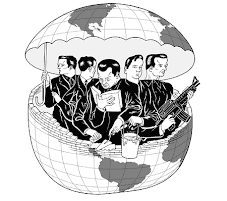The Jakarta Post , Jakarta | Sat, 09/13/2008 10:02 AM | Business
The World Bank, one of the country's major donors, will provide Indonesia with nearly US$2 billion in aid per year for the next four years to support national development programs.
The Bank pledged its commitment Thursday in Washington (Friday, Jakarta time) through a Country Partnership Strategy (CPS) for the period 2009 to 2012, a media statement said.
According to the commitment, the Bank will assist Indonesia with building the capacity of institutions related to environmental sustainability and disaster mitigation, education, poverty reduction, community development and social protection, infrastructure and private sector development.
The Bank said the commitment reflected its overriding confidence in a country that, facing a massive economic crisis ten years ago, has gone on to become "a confident middle-income country," thanks to years of reform.
While the future looks bright for the country, Indonesia should strive to continuously improve its institutions to further enhance growth and cope with various economic challenges, the Bank added.
"Indonesia's main challenge today is the need for more effective institutions," said Joachim von Amsberg, Indonesia country director for the World Bank.
"The CPS aims to help the government improve its existing programs and strengthen the institutions involved.
"When institutions are strengthened, the people win because budgets are then translated into more effective development outcomes: better schools, better health clinics and better livelihoods for the people."
The CPS also includes an expanding role for the International Finance Corporation (IFC), the Bank's private sector arm, which expects new investments to exceed $300 million per year.
"Over the course of the CPS period, IFC will invest long-term capital and provide advice to increase access to financial services, improve infrastructure and strengthen commodity-based supply chains," said Adam Sack, Indonesia country manager for IFC.
"Working both at the national and subnational levels, IFC will also support government initiatives to improve the business environment."
The World Bank and IFC have long been active in supporting the country's development programs, including efforts to help strengthen regulatory frameworks through various surveys.
Only recently, the IFC issued a worldwide report on investment competitiveness, ranking Indonesia as less-than-favorable when it comes to doing business, as compared to many of its regional peers.
In the report, Indonesia is ranked 129th, far behind list-topping Singapore, Thailand (ranked 13th), Malaysia (20th) and Vietnam (92nd).
However, the country did book a 29-percent increase in realized investments in the first semester, compared to the previous year.



No comments:
Post a Comment